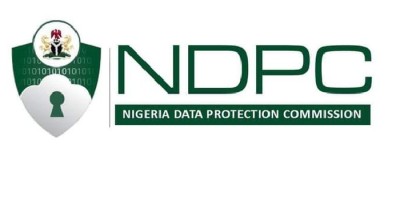- Home
- Grey Matter
- Reforming The Business Climate In Nigeria: Critical Changes Introduced By The Companies And Allied Matters Bill, 2018
Reforming The Business Climate In Nigeria: Critical Changes Introduced By The Companies And Allied Matters Bill, 2018
Posted on Tue 29 Jan 2019
- Download Resource
On Tuesday, January 22, 2019, the House of Representatives of the Federal Republic of Nigeria, at plenary, considered and adopted all the provisions of the Companies and Allied Matters Act (Repeal and Re-enactment) Bill, 2018 (the “CAM Bill”). By this development, the CAM Bill has received concurrent passage by the two chambers of the National Assembly; having been earlier passed by the Senate of the Federal Republic of Nigeria on May 15, 2018. It is expected that in the coming weeks, the CAM Bill would be transmitted to the President for assent after which it will become the new governing regime for setting up and running business entities in Nigeria.
The CAM Bill is a watershed in the Nigerian business and economic landscape and a big boost to the Ease-of-Doing-Business (“EoDB”) campaign of the Government. By repealing and replacing the Companies and Allied Matters Act, 1990 (“1990 Act”), the CAM Bill seeks to promote reform of the onerous legal and regulatory framework as well as administrative bottlenecks which, for close to three decades, have made doing business in Nigeria substantially difficult – particularly for Micro, Small and Medium Enterprises (“MSMEs”) – and had made the economy less attractive to investments hence less competitive.
This piece highlights some of the critical changes which the CAM Bill has introduced to the principal framework regulating the business climate in Nigeria.
(A.) Starting and running a business to become more seamless and less expensive:
The following alterations have been made to the extant regime by the CAM Bill for the purpose of improving ease of registering and running business entities in Nigeria:
-
Provision for Single Member/Shareholder Companies
The minimum number of members/shareholders required to form and incorporate a company under the 1990 Act is two (2). The CAM Bill in section 18(2) has amended this provision by allowing a promoter to establish a private company with only one (1) member/shareholder.
-
Declaration of Compliance no longer required to be made by a Legal Practitioner
The documents required for submission at the Corporate Affairs Commission (“CAC”) in relation to the incorporation of companies under the 1990 Act include a statutory Declaration of Compliance by a Legal Practitioner. This requirement has been replaced in section 40(1) of the CAM Bill with a Statement of Compliance which can be signed by an applicant or his agent, confirming therein that the requirements of law as to registration have been duly complied with.
-
Replacement of Authorised Share Capital with Minimum Issued Share Capital
Under the 1990 Act, the limit on the maximum amount of shares a company can allot is specified by the Authorised Share Capital. In practice, shareholders sometimes agree to raise this limit above the capital requirements of the company at any point in time, so as to avoid the cost and time involved in raising additional capital where the need arises in the future. Since the amount of stamp duty and filling fees payable for company incorporation are based on the Authorised Share Capital, this leads to front-loading of costs thereby making it a more expensive venture. The CAM Bill in section 27 has eliminated the concept of an Authorised Share Capital and replaced same with Minimum Issued Share Capital for companies.
-
Incorporation of a Private Company Limited by Guarantee – Consent of AGF no longer required
Incorporation of a company limited by guarantee is subject to the authority of the Attorney‐General of the Federation (“AGF”) under the 1990 Act and as such, no memorandum of a company limited by guarantee is registrable by the CAC except the consent of the AGF is sought and obtained.
The CAM Bill in section 26 has dispensed with the requirement for the approval of the AGF and has instead provided that where the CAC is satisfied with contents of the Memorandum and Articles of Association submitted by the promoters, it shall cause the application for registration of a company limited by guarantee to be advertised in a prescribed form in three (3) national daily newspapers, inviting possible objections from the public.
-
Common Seal no longer mandatory for companies
Every company is required, under the 1990 Act, to have a Common Seal, the use of which is to be regulated by the Articles of Association. The CAM Bill in section 98 has removed the mandatory requirement for a Common Seal and made its possession and use optional for a company.
-
Provisions for electronic filing & issue of documents, electronic Share Transfer and e-Meetings for private companies
Documents required to be filed with the CAC for registration can now be filed electronically through a e-portal deployed for the process. As provided in section 861 of the CAM Bill, certified true copies of such electronically filed documents are admissible in evidence; with equal validity with the original documents.
In a similar vein, the CAM Bill provides in section 176(1) that instruments of transfer of shares shall include electronic instruments of transfer.
In addition to the foregoing, a private company is permitted to hold its general meetings remotely, provided that such meetings are conducted in accordance with the Articles of the company. This will facilitate participation at such meetings from any location in the world at a cheaper cost.













